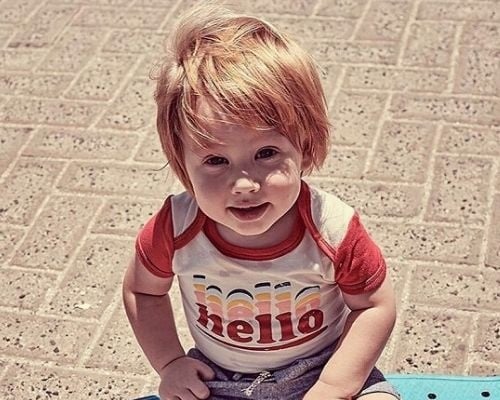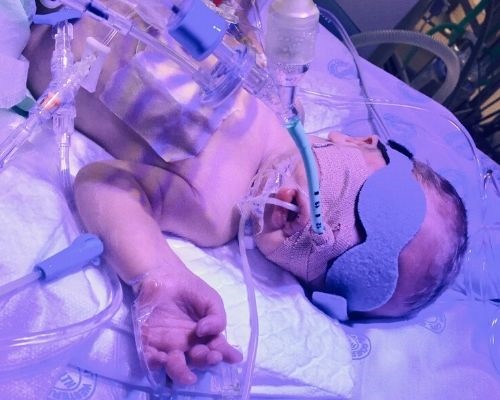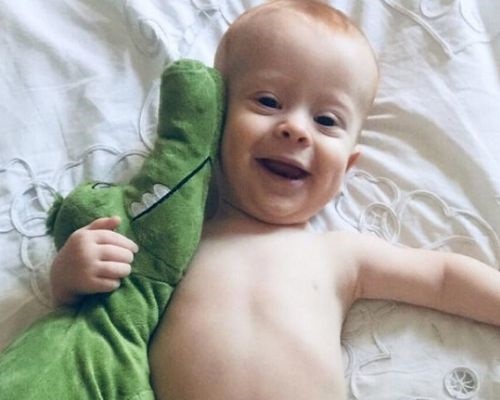
Mom of eight, Claire Brauer, chatted over coffee with Parent24 to tell the story of how her two government hospital birth experiences made an indelible impression on her.
The traumatic birth of her seventh child at a government hospital left her struggling with the trauma, and afraid to return once she fell pregnant again a year later. However, this time around she altered course through attitude and will.
This is her story
After birthing 6 children at home and in private hospitals, Claire planned to have her seventh child at Origin Maternity Hospital.
"I initially wanted to give birth at the Origin Maternity Hospital as we no longer could afford medical aid," she told us, "but then I was diagnosed with placenta previa, at 35 weeks pregnant."
Placenta previa occurs when the placenta covers the opening in the mother's cervix. This means the mother has no choice but to give birth via Caesarean section (C-section). The condition can cause severe bleeding before or during delivery, and this is what happened to Claire.
"I was advised to open a file at Groote Schuur hospital, but on the day I had planned to do that I started hemorrhaging at home," she tells of the harrowing experience.
"We rushed to the hospital, I was wheeled straight into theatre, and instead of opening a file I had a baby," she explains. "Because I had never been there before, I was a stranger to everyone and I was scared, bleeding out in a new environment."
Left traumatised
Claire describes how she had no idea what to expect, though the hospital came highly recommended by our general practitioner," Claire says, adding that the doctors that treated her at Groote Schuur were fantastic.
It was an emergency situation, there wasn't much choice but the doctors were excellent, she says.
It was after baby Ezrah was delivered that things took a turn for the worse.
Claire was unable to be with her newborn son Ezrah, as he had trouble breathing and doctors were treating him in the NICU.
An agency nurse, assigned to Claire for the evening, made the already tense situation worse when she barred Claire from breastfeeding her son. When hospitals are under-staffed, they hire temp nurses to help out, and this is where Claire encountered her first issue.
"I wanted to breastfeed my baby, she wouldn't let me go and so she locked me on the ward," Claire says, emotional at the recollection. "I was kept from my son for an hour... I screamed the ward down," she says.
Mom and baby where eventually re-united, and Ezrah is now a healthy little boy.
Claire reported the incident, disciplinary action was taken and the matron called her to apologise, later, but the experience left Claire traumatised.
One year later
After falling pregnant with her 8th baby a year later, Claire says "This is the interesting part, because I caused major problems after this incident, and here I'm told I have to go back."
She laughs when she says "So when they saw me come back the second time round, they were like "Oh no, here comes trouble!""
Also Read: Your A - Z guide to a government hospital birth
As her pregnancy with her last child progressed, Claire says she had planned to go to a private maternity hospital again, but once again placenta previa, and this time the more serious condition of placenta accreta, forced them to change plans.
Placenta accreta is a life threatening pregnancy condition that happens when the placenta grows too deeply into the uterine wall. The condition is a high-risk pregnancy complication. When it is diagnosed during pregnancy, you'll likely need an early c-section delivery followed by the surgical removal of your uterus (hysterectomy).
At first, she tells us, she was devastated. But she knew she was the only one who could make a change and improve her experience.
"This time we opened the file at 20 weeks, and went to meet the staff early," she says. "It was a completely different experience. I knew what I was going in to."
I was different
"I knew I had to engage, and make the medical staff see me. I thought if I can show them my humanity, I'll see their humanity. And that was the big difference. It wasn't that they were different: I was different," she explains.
"This time I had made it my mission to be nicer with everyone. I was going to be here for a few weeks, so I figured a change in attitude would make a big difference, and what a difference this made," she admits.
"I was admitted to the hospital when I was 29 weeks pregnant and had to remain there until my baby was born at 32 weeks," she told us. At first, she was told to check in at 28 weeks and wait until the baby was born, but Claire asked for 5 days to prepare her family for her absence, first.
"You can't touch that baby!"
She says the biggest thing she had to learn was 'the rules'. Unlike at private hospitals she'd experienced before, Claire says that the rules were not clear, and she had to learn, for example, that if you leave the ward you have to wear your gown.
She laughs again when she tells how she learned that you're not allowed to touch anyone else's baby. " I mean," she says, "I've had 7 kids. For a lot of women, this is their first baby so I would be there chatting and helping and showing them how to burp their baby and the nurse would say "You can't touch that baby!" Once I knew the rules we all got along quite happily."
Cutting edge, amazing technology
Josiah, like Ezrah, was born prematurely, weighing 2.1kgs, 2 months early.
After giving birth Claire bled out. "I lost my entire blood volume on the table," she says, describing how doctors used a cell saver to replace her blood.
"No private hospital has a cell saver," she say with excitement, "They have cutting edge, amazing technology, in these government hospitals. And I was treated with such dignity and respect, and even though I had no real choices, they made me feel empowered."
A change in attitude goes a long way
"My main aim was to see the person behind the job. There's a lot of work and not too many employees, so on a daily basis they are faced with many challenges, yet they hardly ever get a thank you. So showing gratitude really went a long way."
Claire confidently says most of the people employed at the hospital are there to make it a comfortable space for the women in their care.
"The neonatal intensive care unit (NICU) is fantastic and the doctors are truly the best. I feel privileged to have had such good team take care of me. I even had my baby shower in the hospital mothers lounge," she says.
The hospital does not always allow patients to host events, but because Claire had formed such a good bond with the employees they allowed her friends to host her baby shower in her ward.
Also read: What to do when you fall pregnant but don't have medical insurance
Part of the family
Claire says after 5 weeks in hospital, she feels like she became a part of the family. "Government hospitals get a lot of bad publicity but people hardly speak about the good stuff and that is why I have decided to share my story," she explains.
"I have learned that if you are hostile or you are expecting hostility and bad service, that is what you'll get. That's the biggest lesson I have learned from my birth experiences at Groote Schuur."
She went in the second time with a mindset of "I am gonna kill them with kindness," and it made a big difference she says.
Claire said when she returned to the hospital to visit Josiah, who remained there until he was strong enough to be taken home, she tried her very best to go and thank as many people as she could, and it was amazing to see how much they appreciated it.
"I used to drive past the hospital and shudder, but now I drive past and smile, because I have so many happy memories of my time there. It was really redemptive." she says.
Chat back:
Share your story with us and we could publish it. Anonymous contributions are welcome.
WhatsApp: Send messages and voicenotes to 066 010 0325
Email: Share your story with us via email at chatback @ parent24.com
Read more:
Woman told she’d never have children falls pregnant within two weeks of meeting new beau
WATCH: Hilarious gender reveal fail shows what not to do




 Publications
Publications
 Partners
Partners

















